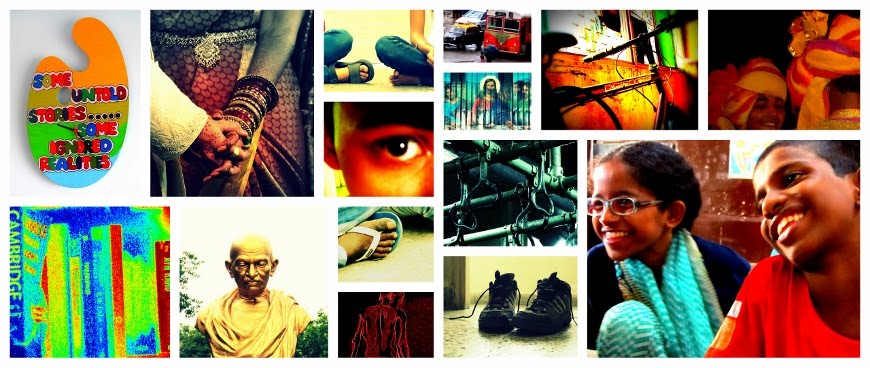We recently mourned for Nelson
Mandela, one of the biggest Human Rights champions of our times. Quoting Jonathan
Capehart*, “he is heralded for doing something no other head of
government has ever done. As the first president of post-apartheid South Africa
in 1996, Mandela ushered in that nation’s new constitution, which included
protection from discrimination based on sexual orientation. The first of its
kind.”
Six days later, on 11th
December, 2013, Supreme Court of India recriminalized consensual same-sex relationships
between adults, even if it is in private. In my country, it seems law is
informed more by popular imagination and religious orthodoxy than scientific
enquiry and philosophy of human rights. Today, I can’t choose whom to love and
who do I have sex with. Forget about choice, in fact I am a criminal by my mere
natural existence. But the law doesn’t really care about what is really
natural. It only cares for what may feed to fancies of some people in this
country. And maybe that is our understanding of democracy – a country for the
majority, by the majority and of the majority. Otherwise how could a Supreme
Court of any country so irresponsibly say that “Delhi High Court overlooked
that a miniscule fraction of country’s population is LGBT”? How large should a
population be in order to receive your justice, milord?
The question today is – Whether
this is my battle or yours? Or ours? Do I have to stand up against this verdict
only if I am a gay man? Or will I still stand up even if I assume other
identities? Should I not participate in the battles that don’t really fall in
the immediate realm of my identity and life issues – Battles that may be
against the oppressiveness of caste, against the atrocities towards religious minorities,
against the gender-based discrimination, against someone’s forced homelessness,
against malnutrition of an entire population, against educational inequity in
my country… and the list goes on? Tomorrow, if government takes away my right
to my choice of food or shelter, will I stay quite? Martin Luther King, Jr.
once said, “Justice denied anywhere diminishes justice everywhere.” Will
justice denied to someone not diminish the justice for everyone?
Fighting
for sexual liberation is not just an LGBT issue. It is a human rights issue and
hence has to be fought at a larger canvas. Well, I shall fight my own battle
and I shall join in yours too. Because if an act against human rights go
uncared for somewhere; we dehumanize ourselves by being party to the act. I realize my humanization is linked
to yours and yours with mine. To deserve my human rights, I shall first remain
to be human. And hence I shall stand up, today, and each time any human being
is treated any lesser than others. And no, not for charity towards those who
may suffer from the said injustice, but for myself because if an act of
injustice has happened, my silence has a role in it and I must speak up to
voice my stand. If I have my biases I shall clear them up. If I am unaware or
unsure of the facts, in this case the naturalness of homosexuality, I will
educate myself. I would let my opinion be informed by knowledge and not by
fear. Because my fear and misinformed opinion may lead to someone be denied of
their basic human rights. And that is not okay.
For how long can we shove off the
conversations around sex and sexuality in the name of public morality? Unless
we move sex out of ethical and moral realm and view it as a basic human need,
it would be difficult to have any meaningful discussion around it. We need to
look at it beyond religious texts and engage with some objective scientific inquiry into this. That should then feed into the construction of our
constitutional morality. And that should happen irrespective of how many citizens
of this country identify themselves as homosexuals, even if the number is just
one.
It is some coincidence that I
received a very thoughtful mail from our CEO, Ms. Vandana Goyal, reminding us the
great legacy that Mr. Mandela has left for us on the same day as Supreme Court
gave away its verdict. She posed these questions to us, “who is there to take
his place? Who will we look to now, to fight the necessary battles for justice
and equity? Who has not just the courage of conviction but the ability to speak
to all of humankind -- to compel and convince even the most sceptical of us
all?” And while reading this, I happened to listen to Mr. Gautam Bhan**, a Lawyer
and activist who in response to SC’s verdict said, “If we can go and mourn for
Mandela while insulting his legacy, then we have lost our way as a society…”
I think to find our way back, we
all will have to ponder over what Vandana has proposed, “There is not someone
else there to take his place. It must be us.”
The title of this post is inspired by Vandana’s mail to us. Ubuntu# is a
South African word that roughly translates into human-ness, to the idea that we
are all bound together in ways that can be invisible to the eye; that there is
a oneness to humanity; that we achieve ourselves by sharing ourselves with
others, and caring for those around us.
* http://www.washingtonpost.com/blogs/post-partisan/wp/2013/12/06/nelson-mandela-lgbt-rights-champion/
** http://www.youtube.com/watch?v=AqCfviKW1EQ
# http://mg.co.za/article/2013-12-10-obamas-tribute-to-mandela-the-full-speech
# http://mg.co.za/article/2013-12-10-obamas-tribute-to-mandela-the-full-speech



